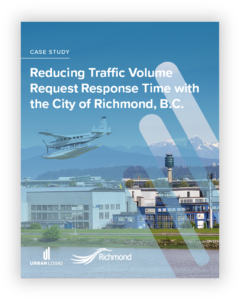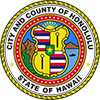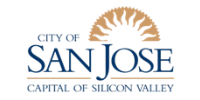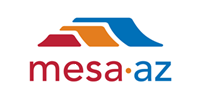
Case Study
Reducing Traffic Volume Request Response Times With the City of Richmond, B.C.
Overview
The City of Richmond Transportation Department sought a faster, more efficient way to analyze data from their inductive loop sensors and other mobility data sources to drive decision-making.
Learn how the City worked with Urbanlogiq to streamline their mobility data management, save staff time, and improve communication and collaboration with data stakeholders.
Learning Outcomes
Readers will learn how UrbanLogiq helped the City of Richmond Transportation Department:
- Centralize and visualize traffic data from multiple sources such as induction loops, traffic cameras, and more in a unified geospatial data platform
- Automate critical traffic metrics such as Average Daily Traffic (ADT) and Peak Hour Factor (PHF)
- Reduce the time it takes staff to respond to traffic volume requests from consultants or the public
- Create a simplified, secure process for collaboration and data sharing with consultants and other data stakeholders
“We have multiple sources from where we extract traffic data such as induction loops, traffic cameras, speed reader signs and pedestrian and bike counters. UrbanLogiq provides a centralized application where all our data sources can reside and be easily available to staff, the public and consultants.”
Bill Johal, Traffic Signals Supervisor, City of Richmond





